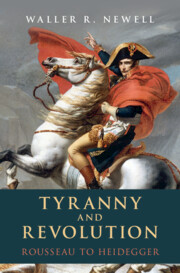3 - The Will to Power and the Politics of Greatness
Nietzsche’s Revelation
Published online by Cambridge University Press: 28 May 2022
Summary
Hegel’s successors adopt his historicism but they emphatically deny his claim that history has unfolded teleologically and is reaching its fulfillment. Marx launched the first assault on Hegel, from the Left. The next assault came from Nietzsche on the Right. Both rejected Hegel’s view that history’s harmonious and belligerent aspects of history unfolded together, culminating in the bourgeois nation-state. They view history as entirely oppressive to date, but envision a radical future transformation of mankind, abandoning the state. Nietzsche blamed Hegel for exposing the truth that values are historically time-bound and relative, paralyzing our capacity for commitment. He challenges us to draw upon history as inspiration for creating new horizons instead of being paralyzed by the dead hand of the past, guided by his two premises of the Will to Power and Eternal Recurrence. Through his prophet Zarathustra, he summons us to will the Overman into being to replace God, sparking a global war in the twentieth century between the Last Man of democratic herd morality and a new caste of rulers: not Marx’s socialist struggle between bourgeoisie and proletariat, but an antidemocratic struggle between masters and slaves, seen by some as a precursor to fascism.
- Type
- Chapter
- Information
- Tyranny and RevolutionRousseau to Heidegger, pp. 112 - 186Publisher: Cambridge University PressPrint publication year: 2022

